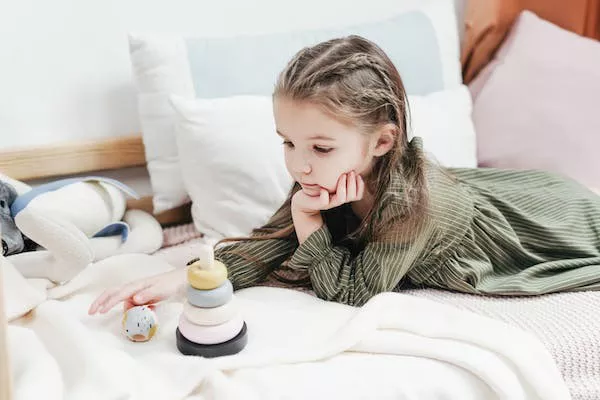Welcoming a newborn into your life is a joyous occasion, but it also comes with its fair share of questions and responsibilities. One common question that new parents often ask is, “How many diapers does a newborn use?” In this comprehensive guide, we will explore the factors that influence newborn diaper usage and provide you with valuable insights to help you prepare for this exciting journey.
I. Factors Influencing Newborn Diaper Usage
Newborn diaper consumption can vary depending on several factors. It’s essential to consider these factors when estimating how many diapers your newborn will need:
Age and Weight of the Newborn
The age and weight of your newborn play a significant role in diaper usage. Typically, newborns weigh between 5 to 8 pounds at birth. Babies on the lower end of this spectrum may require more frequent diaper changes as their bladders are smaller.
Feeding Method
Breastfed babies tend to have more frequent bowel movements, which can result in more diaper changes compared to formula-fed babies. Understanding your baby’s feeding patterns will help you gauge their diaper needs accurately.
Urination and Bowel Movements
Newborns have unpredictable bathroom habits, but on average, they can wet their diapers 8 to 12 times a day and have 3 to 4 bowel movements daily. Keeping track of these patterns can give you a better idea of your baby’s diaper consumption.
II. Estimating Newborn Diaper Usage
Now that we’ve discussed the factors that influence diaper usage let’s estimate how many diapers a newborn might need:
Daily Diaper Changes
On average, a newborn will need 8 to 12 diaper changes per day. This means you’ll go through roughly 240 to 360 diapers in a month. Keep in mind that this number can vary depending on your baby’s unique needs.
Diapers by Size
Newborn diapers come in various sizes to accommodate your baby’s growth. You’ll likely start with size “Newborn” and then transition to “Size 1” when your baby reaches around 8 to 14 pounds. Be prepared to adjust the diaper size as your baby grows.
Stocking Up
To ensure you have an adequate supply of diapers, it’s wise to stock up before your baby arrives. Consider purchasing a few packs of newborn-sized diapers and gradually increase your stock as you gauge your baby’s consumption.
III. Tips for Managing Diaper Usage
Managing your newborn’s diaper usage can be made more manageable with these helpful tips:
Create a Changing Station
Set up a dedicated diaper-changing station in your home with all the necessary supplies, including diapers, wipes, and a changing pad. This will make diaper changes more efficient.
Keep a Diaper Log
Tracking your baby’s diaper changes can help you identify patterns and ensure they are getting enough hydration and nourishment.
Consider Cloth Diapers
Some parents opt for cloth diapers, which can be a cost-effective and eco-friendly choice. Keep in mind that cloth diapers may require more frequent changes but can be more economical in the long run.
Accept Help
Don’t hesitate to accept assistance from family and friends. They can help with diaper changes and provide much-needed support during this transition.
Conclusion
As a new parent, understanding how many diapers a newborn uses is essential for ensuring your baby’s comfort and well-being. While the average daily diaper changes for a newborn can range from 8 to 12, it’s crucial to remember that every baby is unique. By considering factors such as age, feeding method, and your baby’s individual habits, you can estimate their diaper needs more accurately. With preparation, organization, and a little help from loved ones, you’ll be well-equipped to meet your newborn’s diaper requirements and enjoy the precious moments of parenthood.
FAQs about about how many diapers does a newborn use
Q1: How many diapers does a newborn use in a day?
A: On average, a newborn will go through approximately 8 to 12 diapers in a day. However, this number can vary based on factors like your baby’s age, feeding method, and individual habits.
Q2: Do breastfed babies use more diapers than formula-fed babies?
A: Breastfed babies often require more frequent diaper changes than formula-fed babies. Breast milk is easily digestible and can result in more frequent bowel movements, leading to an increased need for diaper changes.
Q3: How does my baby’s age and weight affect diaper usage?
A: Newborns come in various sizes and weights, and this can influence how many diapers they use. Babies on the lower end of the weight spectrum may have smaller bladders and may require more frequent diaper changes.
Q4: Should I buy diapers in advance, and if so, how many?
A: It’s a good idea to stock up on diapers before your baby arrives. Start with a few packs of newborn-sized diapers, but be prepared to adjust the diaper size as your baby grows. As a rough estimate, you might need around 240 to 360 diapers in the first month.
Q5: Are cloth diapers a good option for newborns?
A: Cloth diapers can be a cost-effective and environmentally friendly option. However, they may require more frequent changes compared to disposable diapers. Some parents choose to use a combination of both cloth and disposable diapers based on their needs and preferences.
Q6: How can I keep track of my baby’s diaper usage?
A: Keeping a diaper log can be a helpful way to monitor your baby’s diaper changes. This can help you identify patterns and ensure your baby is getting enough hydration and nourishment.
Q7: What if my baby develops diaper rash?
A: Diaper rash is a common concern for newborns. To prevent it, make sure to change your baby’s diaper promptly, keep the diaper area clean and dry, and use a diaper cream as recommended by your pediatrician if needed.


